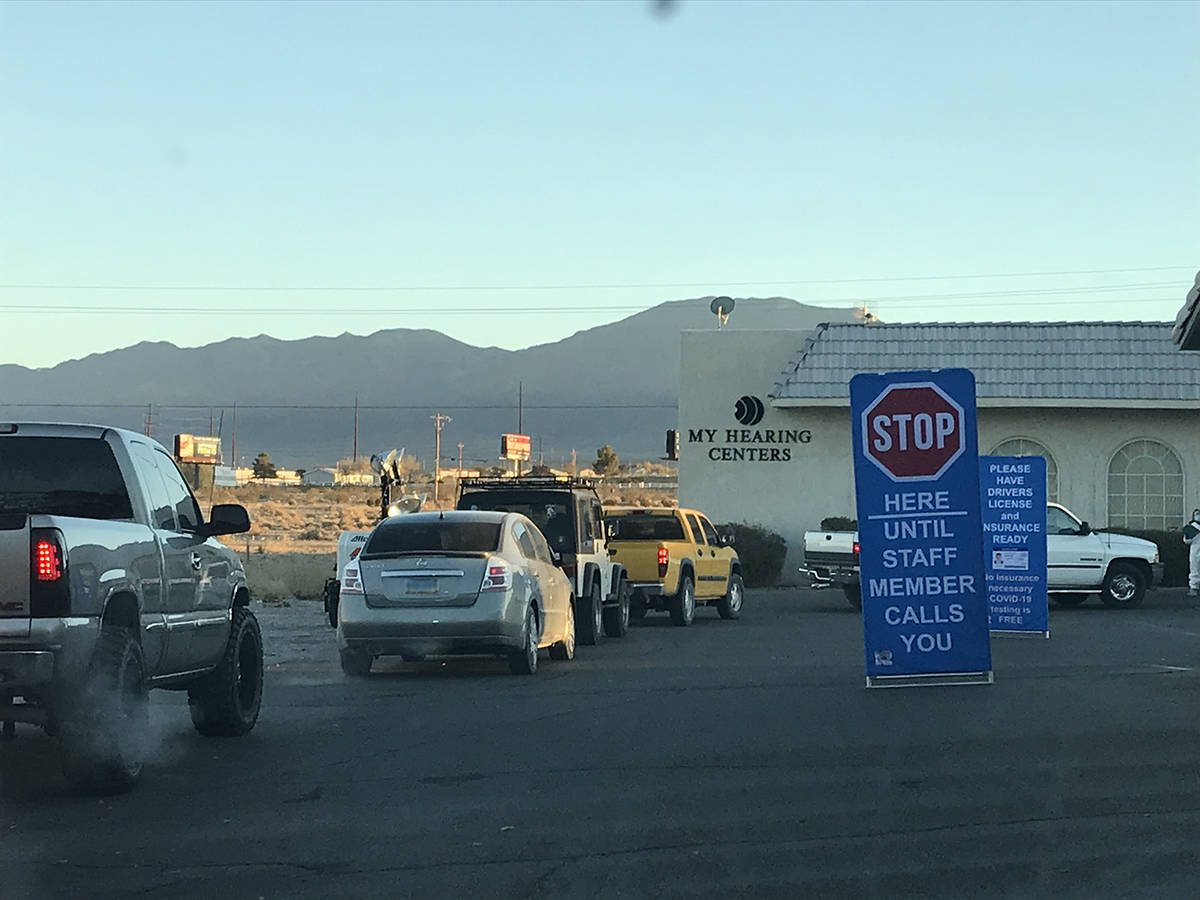State’s COVID testing now screens for new variant
The Nevada State Public Health Laboratory has begun screening people for the B.1.1.7. variant of the novel coronavirus, state COVID-19 Response Director Caleb Cage and Chief of Testing Dr. Mark Pandori said at Wednesday’s briefing on the state of the pandemic in Nevada.
The lab has thus far screened 400 positive swab specimens for the variant, originally found in the United Kingdom, collected between Dec. 19-30. None of the specimens have been found to be B.1.1.7. The NSPHL has screened all 400 positives by way of a molecular assay that rapidly detects B.1.1.7 candidates and then sequence the whole genomes of positives to confirm.
Cage and Pandori announced that as of Wednesday, Nevada has logged 237,393 cases, with the 14-day rolling average of daily cases at 1,570. The state has completed 2,162,129 molecular tests since the beginning of COVID-19, and the test positivity rate over the past 14 days is 20.2%.
The Nevada Hospital Association reported there are currently 1,919 COVID-19 hospitalizations (1,739 confirmed; 180 suspected).
As of Jan. 5, 39,752 doses of COVID-19 vaccine have been administered and reported to NV WebIZ. This includes almost 1,000 second-doses, completed in the past two days, for Nevadans who were the first to be immunized in December. While all doses will be added to the system, there is a delay from when the vaccine is administered until the data entry is complete.
At this time, only a limited amount of the two-dose vaccine available, and Cage and Pandori lauded local partners who “are doing the best they can and deserve a lot of credit for the work being done.”
In addition to B.1.1.7, the NSPHL is also expanding to do surveillance capably of identifying the strain which apparently originated in South Africa, 501Y.v2.














